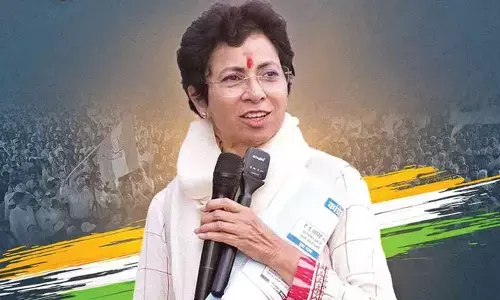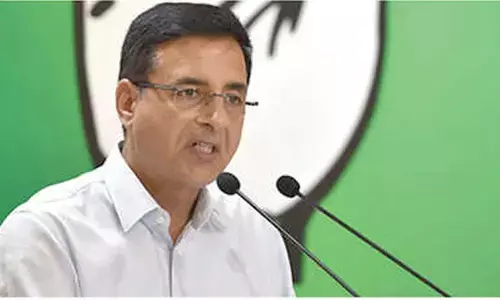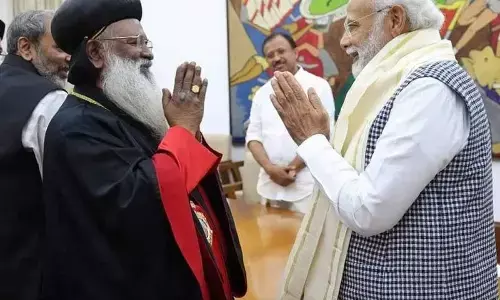Call for strengthening of laws to protect youth from tobacco addiction

Increase legal age for sale of tobacco products to 21 years, comprehensive ban on tobacco advertisement and promotion and ban on sale of single sticks of cigarettes/bidis, are some of the recommendations by experts, to prevent children and students from getting hooked to tobacco an early age.
Bengaluru: Increase legal age for sale of tobacco products to 21 years, comprehensive ban on tobacco advertisement and promotion and ban on sale of single sticks of cigarettes/bidis, are some of the recommendations by experts, to prevent children and students from getting hooked to tobacco an early age.
Chairman of National Commission for Protection of Child Rights, global and local experts came together for a discussion on "Strengthening Legal Framework for Protecting Youth from Tobacco", organized by the National Law School of India University on Thursday. All of them reiterated the urgency for strengthening the legal framework for protecting youth from tobacco for a healthy and tobacco-free Swasth Bharat.
The panelists discussed the lacunas in the Cigarettes and Other Tobacco Products (Prohibition of Advertisement and Regulation of Trade, Commerce, Production, Supply and Distribution) Act, 2003 that are deterring its effective implementation to reduce tobacco consumption. The Act was introduced in 2003 to regulate advertising, sale, and availability of most forms of tobacco products in India. The Act prohibits the advertisement of cigarette and other tobacco products but does not regulate their advertisement at the point of sale. Sale of single sticks is also permissible, increasing affordability and accessibility to minors to purchase tobacco products easily.
Dr Selvarajan, Deputy Director of the State Tobacco Control Cell (STCC) a wing of the Department of Health and Family Welfare, who participated in the webinar, said, "The responsibility of saving the children, who are tomorrow's future, is on our shoulders. To prevent children from experimenting with tobacco products the legal age for access to tobacco products should be raised from the current 18 years to 21 years. When our children attain 21 years, they will surely have the rational thinking to avoid what is bad for them. Also, it is very unlikely for adults to pick up the habit of smoking when they cross a certain age."
"Tobacco companies have been exploiting loopholes in the law to target impressionable minds of children and youth through their marketing tactics. It is critical to strengthen the law by removing all exemptions allowing point of sale advertisements and sale of single cigarettes/bidis to prevent them from endangering the lives of our young generation," said Ashim Sanyal, Chief Operating Officer, CONSUMER VOICE, a non-government organisation based in New Delhi working on various social and health issues including tobacco control across India. According to the Global Youth Tobacco Survey released recently by Mansukh Mandaviya, Union Minister for Health and Family Welfare, nearly one-fifth of students aged 13-15 years are using tobacco products in India. The nationwide survey of students revealed that 38 percent of cigarettes, 47 percent of bidi and 52 percent of smokeless tobacco users picked up the habit before their 10th birthday.
"It is scientifically established that if a person is kept away from tobacco till the age of 21 years and above, there is a very high probability that he/she will remain tobacco-free for the rest of his life. Several countries have now increased the minimum age of sale of tobacco products to 21 years and banned the sale of single cigarettes to control their easy accessibility and affordability to youth. Increasing the minimum legal age for sale of tobacco products from 18 years to 21 years and banning the sale of loose/single sticks of cigarettes by amending COTPA 2003, is crucial to protect youth from tobacco as it has the potential to reduce tobacco use initiation and progression to regular smoking," urged Mr Priyank Kanoongo, Chairman, National Commission for Protection of Child Rights.
Countries are increasingly recognizing that almost all those who become long-term tobacco users commence tobacco use while they are adolescents. Pre- and post-implementation data shows increasing the tobacco age to 21 will help to prevent young people from ever starting to smoke and to reduce the deaths, disease and health care costs caused by tobacco use. At least 14 countries (Ethiopia, Guam, Honduras, Japan, Kuwait, Mongolia, Palau, Philippines, Samoa, Singapore, Sri Lanka, Thailand, Uganda, and the USA) have now increased that minimum age to 21 years for buying tobacco products. At least 86 countries have banned the sale of single-stick cigarettes to control their easy accessibility and affordability to youth. India has the second-largest number (268 million) of tobacco users in the world and of these 13 lakhs die every year from tobacco-related diseases. 10 lakh deaths are due to smoking, with over 200,000 due to second-hand smoke exposure, and over 35,000 are due to smokeless tobacco use.
Nearly 27% of all cancers in India are due to tobacco usage. The total direct and indirect cost of diseases attributable to tobacco use was a staggering Rupees 182,000 crore which is nearly 1.8% of India's GDP. Tobacco use in all forms, whether smoking or chewing, is associated with severe COVID-19 casualties as per the Ministry of Health and Family Welfare and the Indian Council of Medical Research.














